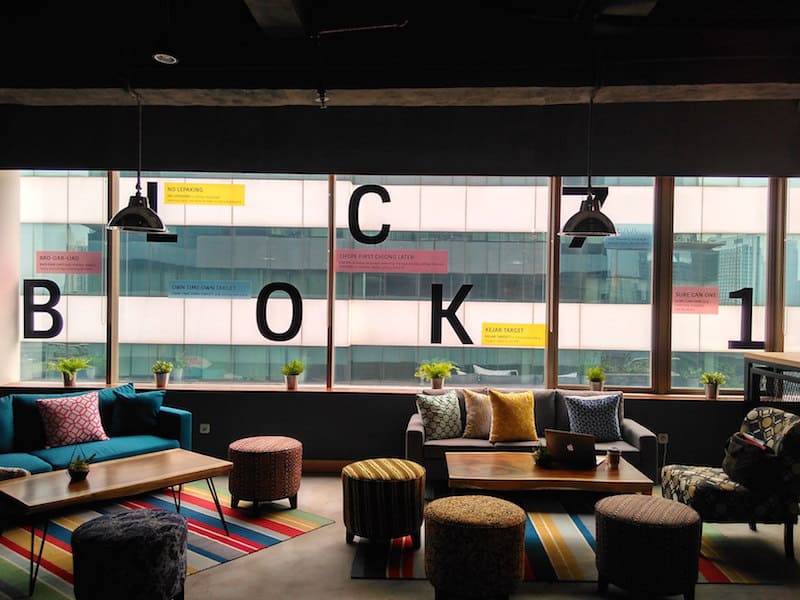The startup complex has previously opened branches in China’s Suzhou as well as San Francisco in California.
Established in 2011, the iconic local startup hub Block71 has since expanded stealthily. The startup complex, incubator, and coworking space have grown from its initial capacity of hosting 250 startup ventures in 2011 to this year encompassing a total of 750 startups. The startup complex has previously opened branches in China’s Suzhou as well as San Francisco in California. This March, their new coworking space in Jakarta was unveiled, but it has yet to have an official public launch.
In partnership with Salim Group – the conglomerate behind the renowned Indomie brand and chain of Indomaret convenience stores – Block71 Jakarta is already home to several Indonesian startups such as PopBox, a courier service and Pinjam, an online pawn shop. The expansion is in line with Block71’s strategy of being like an aircraft carrier – setting up links in different cities and startup ecosystems so as to help propel local startups abroad.
Block71’s success can be owed partly to the fact that it is supported by NUS Enterprise, SingTel Innov8 and the Media Development Authority of Singapore. As part of the Ayer Rayah industrial estate, Block71 was one of the oldest industrial buildings slated for demolition in 2010. With the intention of pulling the tech startup community closer together, the collaboration changed Block71’s fate and turned it into the startup hub that we know today.
Although the startup complex is affectionately known as Block71, its official name is actually JTC Launchpad. From its name, some might think that the startup hub consists of only one building, Block 71, but it actually consists of seven buildings altogether. These include Block 73 which usually serves as home base for younger startups, as well as Block 79 which houses more biotech tenants.
Ayer Rajah Industrial Estate or one-north, now the hub of Singapore’s startup ecosystem.
Speaking on the topic of startup-related government initiatives, Prime Minister Lee commented at the JTC Launchpad event: “Our part as the government is to try to make your role of starting up businesses easier and more hassle-free. For example, not having to run around finding space to rent, find mentors, or access to financing, so that you can concentrate on building the best product and service.”
Government support in entrepreneurship is a topic that is brought up regularly in parliamentary debates and discussions. The good news is, the government has given increased recognition to the importance of the roles that startups can play in shaping the future of Singapore’s economy. Many funding programs and government initiatives have helped to strengthen the local startup ecosystem and create cycles of entrepreneurship activities.
Both the government and local community have critical roles to play in keeping the startup ecosystem thriving, as it could go downhill very quickly should the momentum be slowed down. Despite that, the local startup community can look forward to a stronger startup ecosystem in the years to come. With overseas ventures as seen in Block71’s expansion, corridors are being created for Singaporean startups to explore market opportunities in other countries, improving their chances of becoming a global company.



















